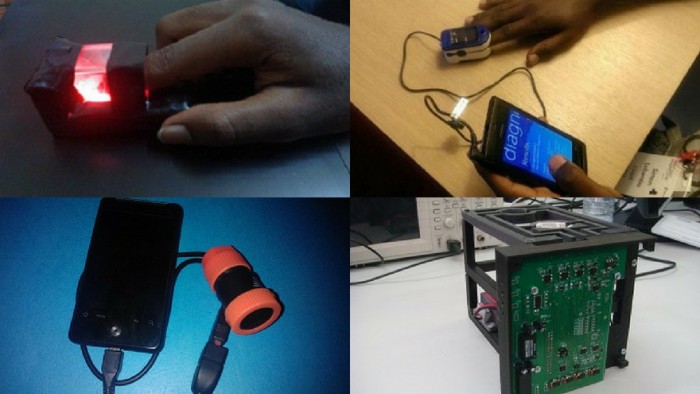Globally, Uganda holds the third highest burden of Malaria infections (5%) and the eighth-highest level of mortalities (3%). A Ugandan software engineer has developed a low-cost device called Matibabu that tests for Malaria without pricking the finger.
Brian Gitta and his team developed the innovative non-invasive testing kit during their undergraduate studies at Makerere University. Matibabu means “treatment” in Kiswahili which is one of the local dialects in East Africa.
Matibabu has the potential to replace traditional lab tests because it does not use invasive needles that many children struggle with. The kit also significantly cuts down on testing time as the device takes 2 minutes to check for Malaria while a traditional lab test takes around 30 minutes.
The suspected patient places a finger into a receptacle on the device which shines a beam of red light onto the finger. The light identifies a substance called haemozoin which is a by-product of the malaria-causing parasites. The testing kit relays this information to a laptop or mobile phone which shows a negative or positive result.
Brian had the light bulb moment when he suffered a severe case of malaria that prevented him from attending his lectures. While recuperating at the hospital he imagined a test for Malaria that could be carried out without a pain-inducing needle.
He formed a team comprising students with backgrounds in engineering, infectious diseases and computing to develop Matibabu. Later, Gitta and his team would go on to clinch the prestigious Royal Academy of Engineering Africa innovation prize worth £25,000.
“We are incredibly honored to win the Africa Prize — it’s such a big achievement for us because it means that we can better manage production to scale clinical trials and prove ourselves to regulators.” Brian said in an interview.
Gitta became the youngest person to win the award at 24 and is also the first Ugandan to receive the accolade. The prize money would be used to fund research and mentoring as the team continues working on the test kits.
Malaria is transmitted by parasite-carrying mosquitos and led to more than 400,000 deaths globally in 2020. These are mainly infants born in poverty-stricken areas.
Clinical trials showed that the device has an 80% accuracy rate in testing for Malaria. Gitta and his team are working to increase the accuracy to 90% through technological advancements.








